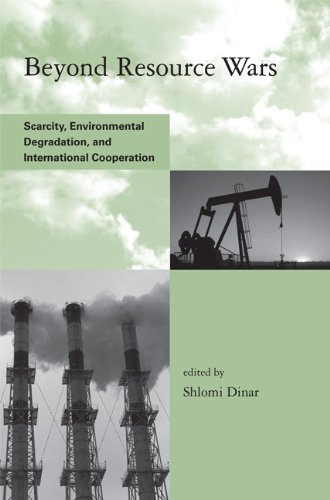

Most ebook files are in PDF format, so you can easily read them using various software such as Foxit Reader or directly on the Google Chrome browser.
Some ebook files are released by publishers in other formats such as .awz, .mobi, .epub, .fb2, etc. You may need to install specific software to read these formats on mobile/PC, such as Calibre.
Please read the tutorial at this link: https://ebookbell.com/faq
We offer FREE conversion to the popular formats you request; however, this may take some time. Therefore, right after payment, please email us, and we will try to provide the service as quickly as possible.
For some exceptional file formats or broken links (if any), please refrain from opening any disputes. Instead, email us first, and we will try to assist within a maximum of 6 hours.
EbookBell Team

4.3
48 reviewsCommon wisdom holds that the earth's dwindling natural resources and increasing environmental degradation will inevitably lead to inter-state conflict, and possibly even set off "resource wars." Many scholars and policymakers have considered the environmental roots of violent conflict and instability, but little attention has been paid to the idea that scarcity and degradation may actually play a role in fostering inter-state cooperation.
Beyond Resource Wars fills this gap, offering a different perspective on the links between environmental problems and inter-state conflict. Although the contributors do not deny that resource scarcity and environmental degradation may become sources of contention, they argue that these conditions also provide the impetus for cooperation, coordination, and negotiation between states. The book examines aspects of environmental conflict and cooperation in detail, across a number of natural resources and issues including oil, water, climate change, ocean pollution, and biodiversity conservation. The contributors argue that increasing scarcity and degradation generally induce cooperation across states, but when conditions worsen (and a problem becomes too costly or a resource becomes too scarce), cooperation becomes more difficult. Similarly, low levels of scarcity may discourage cooperation because problems seem less urgent.
With contributions from scholars in international relations, economics, and political science, Beyond Resource Wars offers a comprehensive and robust investigation of the links among scarcity, environmental degradation, cooperation, and conflict.